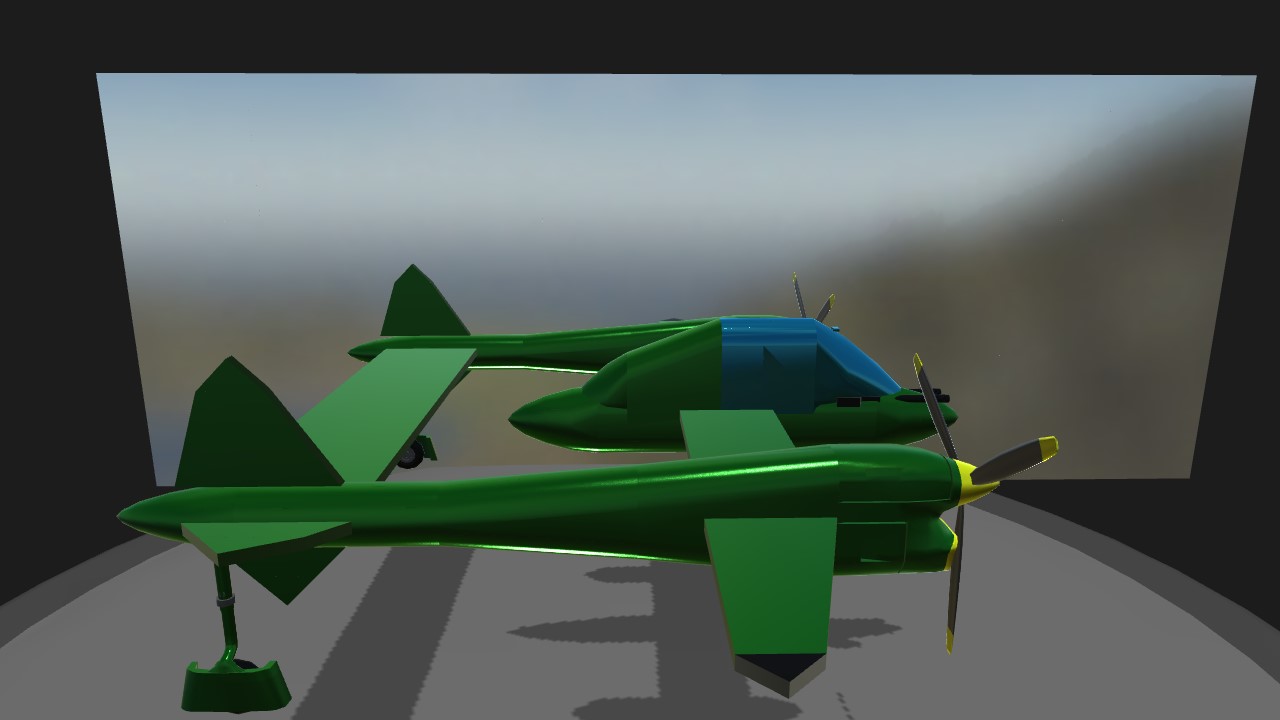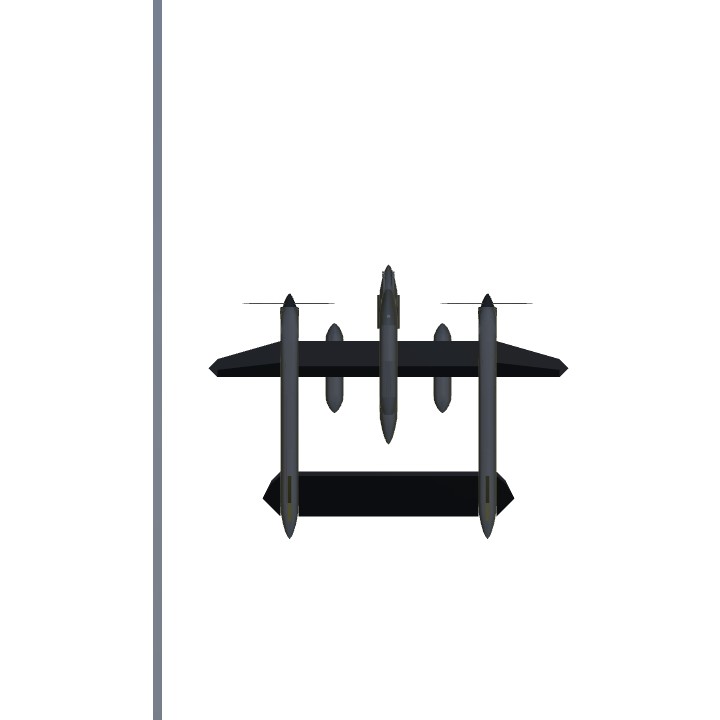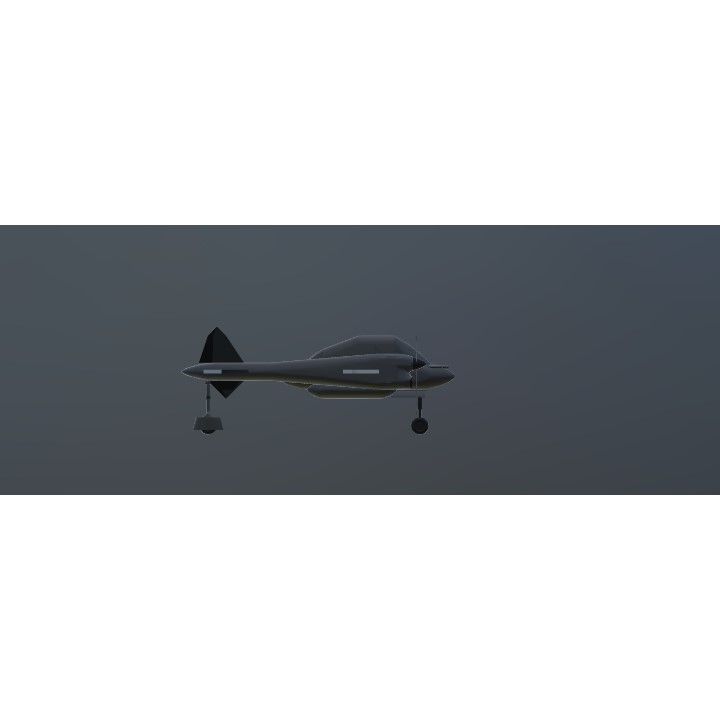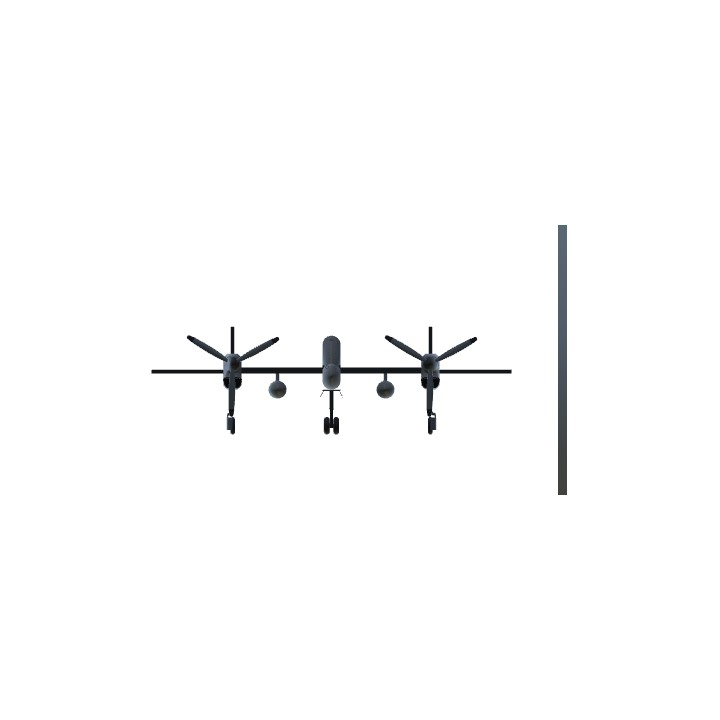The plane flies okay and kind of looks like the real thing i guess.
History:
The XP-38 Lightning prototype was about as graceful looking as a 1930s airplane could get, but its clean lines were deceiving and disguised some major faults. What would become one of the best fighters in World War II was created more by happenstance than by design. The Lockheed P-38 Lightning was originally designed as a bomber-interceptor and was never intended to be a fighter. Weight was kept to a minimum and it was far more advanced and faster than its U.S. counterparts, the Bell P-39 Airacobra and Curtiss P-40 Warhawk. It caught the attention of the US Army Air Corps (USAAC) very quickly and it would be in great demand. It was faster than the Zero—even on one engine. It shot down more Japanese airplanes than any other fighter during World War II—seven of the top scoring USAAF aces in the Pacific flew the P-38. It was as versatile as the de Havilland Mosquito, but it was the only truly successful twin-engine fighter of World War II. It was basically a hand-built airplane and was never meant to be mass produced. All skin sections were butt-joined using flush riveting, and all flight controls were metal covered. The total order was expected to be only fifty aircraft, so when orders started coming in by the hundreds, Lockheed had to scramble to find room to increase production. Over lunch, Lockheed’s president, Bob Gross, made a deal to buy the old 3-G whiskey distillery for $20,000 to make room for an additional production line. However, initial production was slow and by the time Pearl Harbor was attacked, on December 7, 1941, only 69 Lightnings were completed. When first introduced in 1939, the Lightning was able to fly a steady course at 413 mph (665 km/h) making it the fastest production airplane in the world and it remained one of the fastest climbers right up to the end of the WW II.
Red more at http://www.aviation-history.com/lockheed/p38.html
Specifications
General Characteristics
- Created On iOS
- Wingspan 37.7ft (11.5m)
- Length 65.6ft (20.0m)
- Height 24.6ft (7.5m)
- Empty Weight 4,873lbs (2,210kg)
- Loaded Weight 10,495lbs (4,760kg)
Performance
- Horse Power/Weight Ratio 0.571
- Wing Loading 59.6lbs/ft2 (291.0kg/m2)
- Wing Area 176.1ft2 (16.4m2)
- Drag Points 2934
Parts
- Number of Parts 56
- Control Surfaces 18
- Performance Cost 354





I haven't even started :P@Warbrine
@SimpleKingdomAerialTesting I have completed and posted the banana bus
@SimpleKingdomAerialTesting Yaaas and then add the key chain
Or stuff it and make it a plush @Warbrine
@SimpleKingdomAerialTesting @SimpleKingdomAerialTest@SimpleKingdomAerialTesting you should add a key chain XD
Hay... Is for horses... That was very true about my plane...@Warbrine
@SimpleKingdomAerialTesting go ahead I have the deadly p38 you have the cute plus one XD
Can I compete and noob week :P Of course you can use it! @Warbrine
This is it
Can I borrow your history I have made a p 38 2
Very nice, this is what i meant, great work
@bskngshrk autocorrect
with all due respect, it's spelled "Lockheed" with two e's
Very nice!!
Chibi P-38, IT'S SO CUTEEEE!!!!